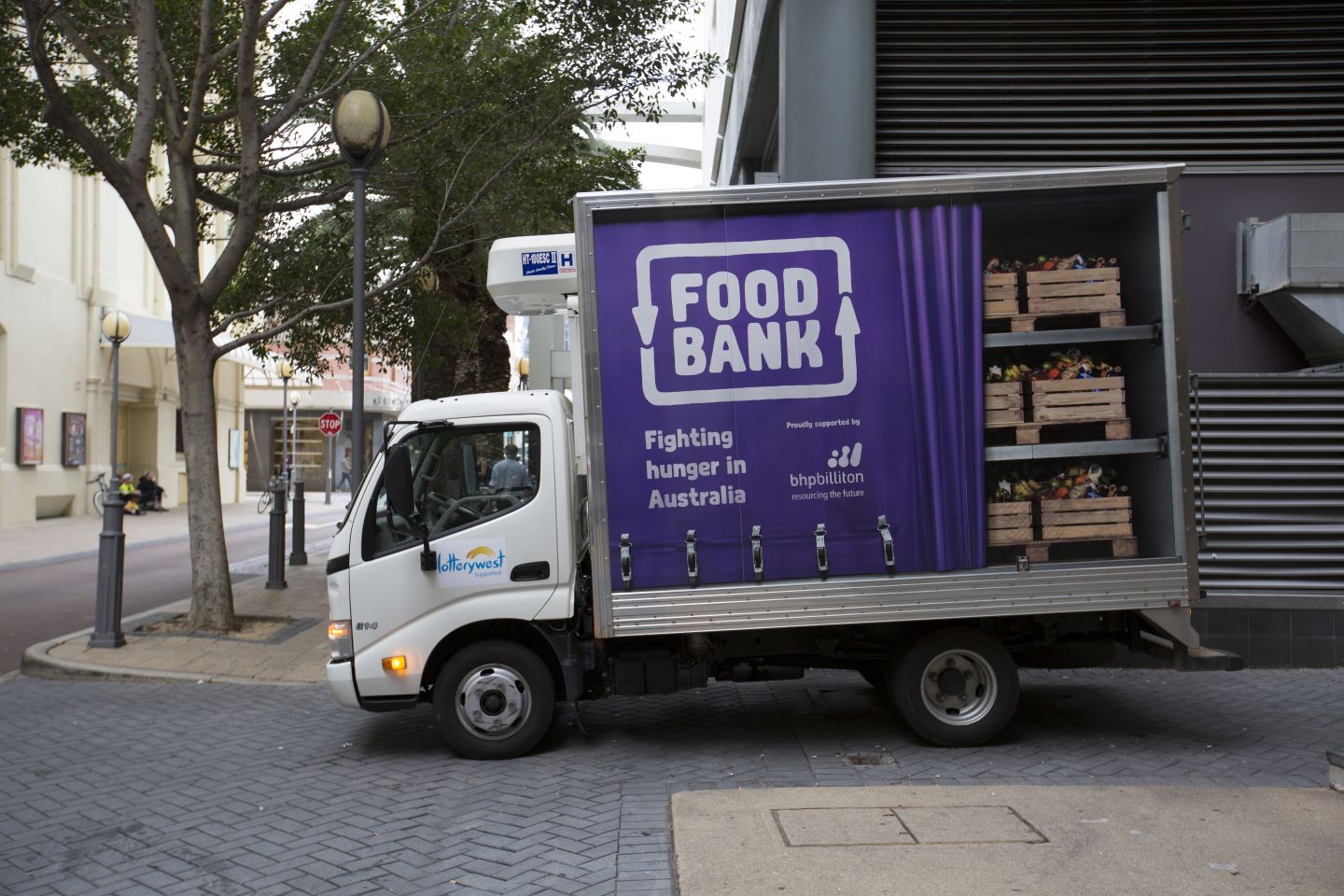Despite being one of Australia’s richest states, hardship is becoming more commonplace in Western Australia with rising cost of living impacting people’s ability to meet basic needs.


Over the 2023/24 financial year, the Financial Wellbeing Collective supported more than 10,000 Western Australians with emergency relief access, facilitating over $412,000 in emergency relief. For those 10,000 Western Australians, food is the primary form of relief sought and delivered.
As the state’s largest collaborative network addressing financial hardship – powered by 12 partner organisations including Anglicare WA and Uniting WA – the Financial Wellbeing Collective facilitated more than 9,500 referrals to Foodbank WA over the past financial year.
The Foodbank Hunger Report 2024, released 15 October 2024, showed that in WA close to 200,000 households experienced severe food insecurity over the last 12 months. Nationally, the Hunger Report revealed that 93 per cent of people surveyed aren't able to afford balanced meals for themselves or their family.
“The cost-of-living crisis is having a significant impact on people’s ability to afford food,” Foodbank WA CEO Kate O’Hara explained. “The relentless rising costs across essential goods, including food, housing, and utilities, is putting pressure on households, especially low-income families, students, and pensioners. The cost of basic groceries, such as bread, fruit, vegetables, and meat seem to be more expensive from week to week."
The report found that in Australia 3.4 million households are experiencing food insecurity, including 2 million who are experiencing "severe" food insecurity.
“In a state as rich as WA, with an abundance of grain, meat and livestock and dairy, it’s difficult to understand how we aren’t doing better. So much more needs to be done. Everyone in this country deserves the basic human right of access to healthy and nutritious food,” she said
Ms O’Hara added that the stress associated with the inability to afford food is contributing to deteriorating mental health for many people in our community. “The worry about making ends meet is increasing anxiety and depression in many households, and it's not just financial stress. The cost-of-living crisis is putting pressure on relationships and even leading to social isolation with many having to cut back on social activities due to financial constraints,” she explained.
“The cost-of-living crisis is deeply intertwined with mental health, education, and overall wellbeing creating a vicious cycle where financial stress leads to poor health and educational outcomes, which in turn further limit opportunities for individuals to improve their situations.”
Financial Wellbeing Collective General Manager Helena Jakupovic explained that cost of living is now one of the main reasons for financial hardship in the client cohort the organisation supports. “Cost of living and housing unaffordability is leaving household budgets stretched. After paying rent or the mortgage, many of our clients have little left over to afford life essentials such as food,” Ms Jakupovic explained.
The Financial Wellbeing Collective’s Emergency Relief and Food Access Service, a central point of access for Western Australians struggling to afford essentials such as food, medication, rent, fuel and school supplies, has experienced a 50 per cent increase in call volumes to the service in the last three years. “We took 36,000 calls in FY 23/24 from Western Australians seeking emergency relief,” Ms Jakupovic said.
“It is disgraceful that, in one of the richest states in what we call the ‘lucky country’, hardship is becoming more commonplace, so much so that a growing number of families are struggling to put food on the table each day,” she added.
The Collective supported 29,000 Western Australians in FY 23/24 through its hardship crisis intervention services of financial counselling, and emergency relief and utility grant access services.
Ms Jakupovic said increased funding is needed to assist some of Western Australia’s most financially vulnerable. “To address food stress in our community we need increased funding to emergency relief services, particularly into regional areas where there is unmet need,” she said.
“People experiencing food stress and financial hardship have low financial wellbeing which impacts all aspects of their lives including mental and physical health, relationships, employment and the ability to meet responsibilities,” Ms Jakupovic said.
“Many of our clients experiencing food stress carry feelings of shame or failure. They tie the inability to afford food with their self-worth, which greatly impacts their mental health. This is extremely unfair, as these clients are fighting every day to simply survive and provide for their families.”
According to the Australian Bureau of Statistics, the average change in prices for food and non-alcoholic beverages has jumped by 3.8 per cent from June 2023 to June 2024.
The housing shortage and rental increases in WA, particularly in Perth and regional areas, are forcing people to allocate more of their income to housing, leaving less for food and other necessities. Increased utility bills also add to the financial burden.
While there are government subsidies and welfare payments aimed at helping with the cost of living, these have not kept pace with inflation. Many experts are calling for additional support from the government, including an increase to JobSeeker payments which would provide immediate relief for vulnerable families, to address the growing issue of food insecurity in WA.
“There are several proposed initiatives we support, such as the national tax incentive for the food sector, which has been proposed that would give farmers and manufacturers the ability to claim some of the expenses involved in food donations. The food tax bill is due to go before the Senate later this year. We also strongly support the Raise the Rate for good campaign,” Ms O’Hara said.











